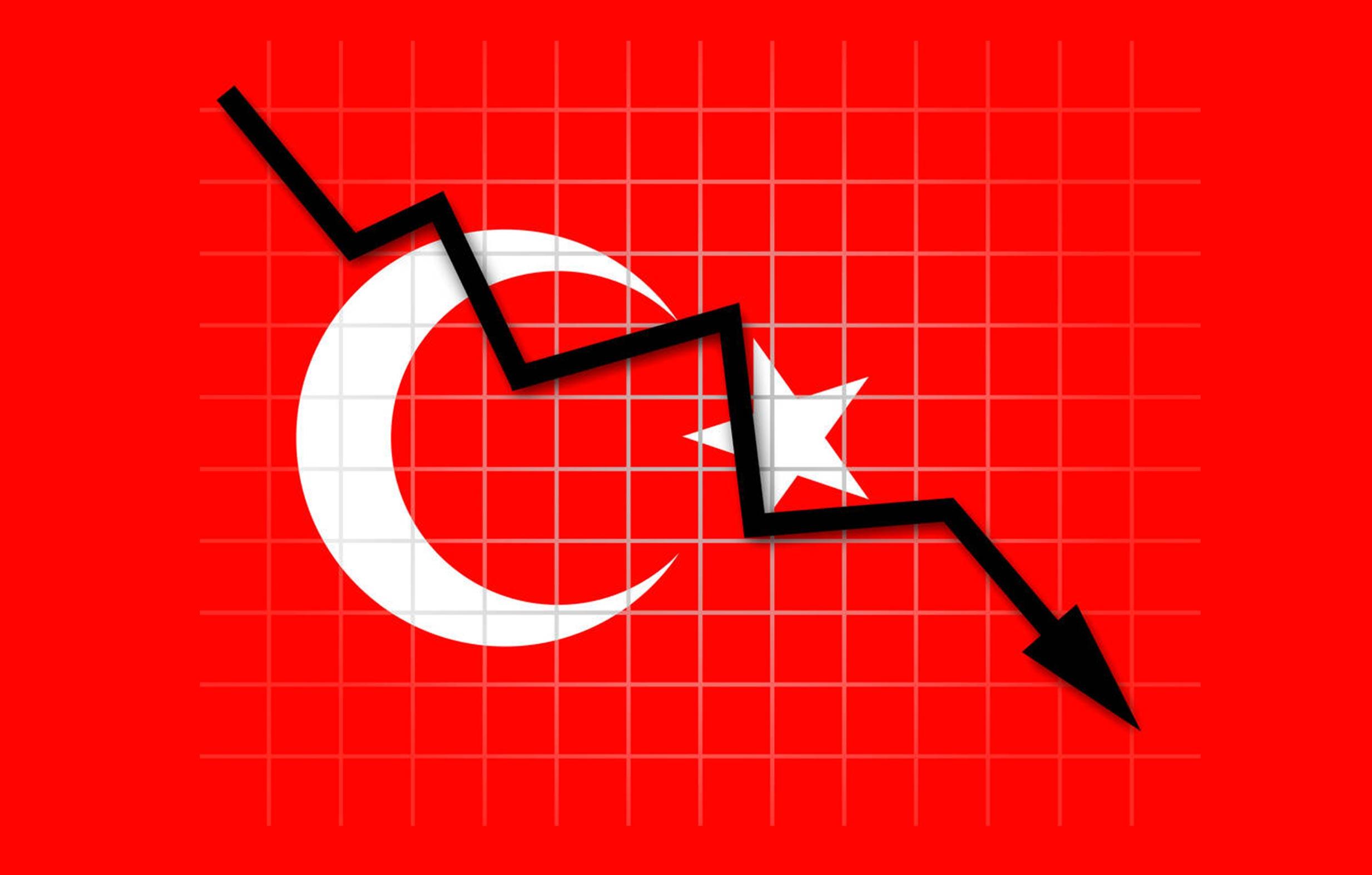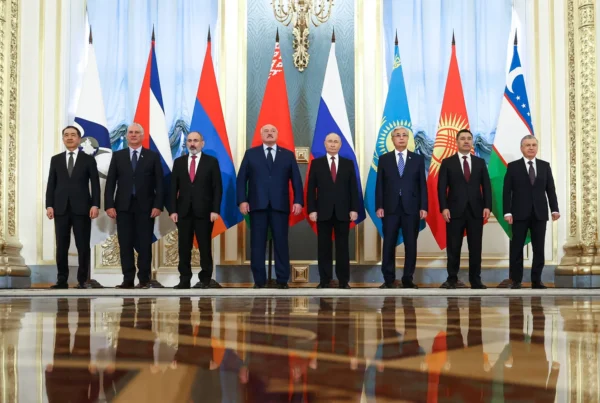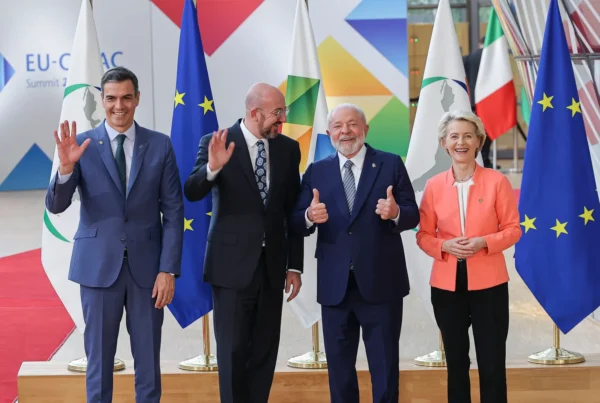In efforts to make Turkey’s economy more competitive at home and in export markets, President Erdoğan is devaluing the lira and is practicing unorthodox monetary and banking policies, which makes inflation rise and leaves Turkey in a dire economic situation. The Ukraine crisis will exacerbate this negative trend in Turkey.
Lena Krikorian, 23 March 2022
Turkey’s inflation spiked to its highest rate in the past 20 years at 54.4% on 3 March 2022. Over the last four months, the Republic of Turkey has been undergoing a currency crisis that Turkey’s current ruling party – the Justice and Development Party (AKP), led by President Recep Tayyip Erdoğan – has been unable to resolve. According to Reuters, Turkey’s currency – the lira – fell by 44% last year against the dollar and is already down by 0.4% since the start of 2022. The causes of the downfall of the lira stem from rising inflation, as well as questionable monetary and political policy-making by the AKP and President Erdoğan. Although the Turkish economy boomed by 11% last year, the growing trade deficit at 140%, rising oil and gas costs, and inability to cap the rise in inflation has hindered Turkey’s economy and practically removed basic purchasing power for people in need of supporting their families.
Since the lira crashed in November 2021 after barely recovering from a currency crisis in 2018, annual food inflation soared to 64.5% and comprise the largest weight in the country’s total consumer basket at 25% . Steep vegetable and bread prices are leaving families unable to buy food and other essential goods. Faced with inflationary pressure, people in Turkey are buying dollars and rushing to convert their savings to gold and foreign currencies as a means to protect themselves against rising inflation. According to the Turkish Democracy Project, bakeries closed for ten days throughout Turkey in December due to staggering food prices and skyrocketing costs of wheat. With a population of over 83 million, many people in Turkey are failing to make ends meet as prices for basic goods, energy, rent, and rising unemployment rates are plaguing the population. The national economic hardship is sparking protests and strikes, and anti-AKP sentiment amongst all ages and demographics throughout the country.
President Erdoğan’s response to the currency crisis reflects his tight and troubling control and consolidation of power. According to Euronews, Erdoğan coined interest rates as “the mother and father of all evil.” In the past year, Erdoğan has dismissed four central bank chiefs and several governors that did not want to lower interest rates and more recently, he fired the head of the Turkish Statistical Institute. In all dismissals, President Erdoğan is cited to have disagreed with the central bank authorities and pushed for cutting the main interest rate because he believes that high interest rates cause prices to rise and will discourage borrowing when in reality, conventional economic theory finds that high interest rates curb inflation.
Given the country’s significant inflation, President Erdoğan has put pressure on Turkey’s central bank to devalue the lira by lowering interest rates, and when authorities oppose him, he fires them. As such, his tightening grip on power since the AKP’s first victory in 2002 has left the central bank with no independence to put forth healthy monetary policies to boost the lira against the dollar and bring economic growth back to Turkey. Since 2018, Turkey has been unable to pay back its debts and the economic consequences of the COVID-19 pandemic have left the country in a poor financial situation that laid the foundation for the current lira crisis.
Other emerging economies experiencing currency and economic hardships from the pandemic – i.e. South Korea, Russia, Brazil, Mexico and Hungary – have been raising interest rates to keep inflation at bay, leaving Turkey’s President Erdoğan alone in the camp of emerging market economies to take such an unorthodox monetary policy approach. According to Bloomberg, Turkey’s rise in inflation rates makes its benchmark interest rate to approximately negative 40%, which leaves the country as having the lowest real yield among emerging markets by far.
Throughout the last two months, the lira was relatively stable while inflation continued to climb, but as Russia invaded Ukraine on all fronts, the lira faced another steep decline as the dollar strengthened. Last year, Russia and Ukraine supplied 80% of Turkey’s USD 4 billion grain imports and bread prices are bound to rise as consumer inflation increases even more with the war, according to Al-Monitor. While all sectors will be impacted by the war in Ukraine, tourism and energy are projected to be hit strongest in Turkey as the war already sparked climbing oil prices and decreased tourism revenues.
According to Al-Monitor, Russian and Ukrainian tourists comprised over a quarter of Turkey’s foreign visitors last year, and approximately 7- to 8- million Russian and Ukrainian tourists were anticipated to visit Turkey this year, which expected to bring in USD 8-10 billion. According to Bloomberg, the rate of inflation in energy rose from 76.4% in January to 83% at the end of February while annual price gains in food increased to 64.5% despite the government’s cut on household power consumption and food taxes. Even though the lira somewhat stabilized in early February, it lost around 5.8% of its value against the dollar this year because investors are avoiding riskier assets based on sanctions imposed on Russia over its war on Ukraine, leaving the lira even more vulnerable to crash again than in the beginning of the recent currency crisis.
As of 2 March 2022, the lira weakened by another 1.5% against the dollar as investors in the region are weighing the risks presented by Russia’s invasion of Ukraine on the Turkish economy. On Thursday 24 February 2022, Reuters reported that the Turkish lira fell more than 5% in light of the recent Russian invasion of Ukraine, which positions Ankara to try to restore public trust that the lira will bounce back. Suffering its largest decline since late December, the lira dropped to as low as 14.62 against the dollar followed by another drop this week to below 14%. While Erdoğan has been urging for an immediate ceasefire between Russian and Ukrainian forces, Turkey has also supplied Bayraktar TB2 drones to Ukraine and has offered to be a mediator of the conflict to deflect from its crippling currency crisis at home and its other costly and nationalist military endeavors in the region.
Since 2016, President Erdoğan has employed increasingly right-wing and nationalist foreign policy tactics to distract from domestic problems such as the currency crisis. Turkey’s involvement in Syria, Azerbaijan, Libya, Qatar etc. are examples of military campaigns that have cost Turkish taxpayers liras they cannot afford. Turkey’s worsening currency crisis and lack of an independent central bank present major risks and deepening economic inequality for the well-being of the Turkish population. Continuing its unorthodox approach to this currency crisis, Turkey’s central bank once again lowered the interest rate by another 100 basis points from 10.75% to 9.75% at its 17 March meeting. As presidential elections loom on the horizon in 2023, President Erdoğan will have to make serious changes to Turkey’s domestic and foreign policy packages to quell risk and garner support for the AKP’s future. In the AKP’s Turkey, there is always a chance the party will call early elections. However, as long as the Turkish President continues down the authoritarian and unorthodox political and economic path, Turkey’s people and economy will continue to suffer.






